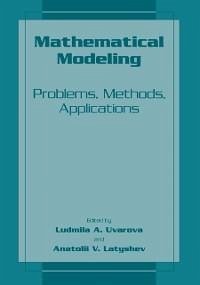
Modeling Complex Living Systems (eBook, PDF)
A Kinetic Theory and Stochastic Game Approach
Versandkostenfrei!
Sofort per Download lieferbar
72,95 €
inkl. MwSt.
Weitere Ausgaben:

PAYBACK Punkte
36 °P sammeln!
This book develops new mathematical methods and tools to model living systems. The material it presents can be used in such real-world applications as immunology, transportation engineering, and economics. The first part of the book deals with deriving general evolution equations that can be customized to particular systems of interest in the applied sciences. The second part of the book deals with various models and applications.Specific topics covered include: modeling of the competition between cells of an aggressive invasive agent and cells of the immune system; modeling of vehicular traff...
This book develops new mathematical methods and tools to model living systems. The material it presents can be used in such real-world applications as immunology, transportation engineering, and economics. The first part of the book deals with deriving general evolution equations that can be customized to particular systems of interest in the applied sciences. The second part of the book deals with various models and applications.
Specific topics covered include: modeling of the competition between cells of an aggressive invasive agent and cells of the immune system; modeling of vehicular traffic flow; modeling of swarms and crowd dynamics in complex geometric environments; and methodological aspects related to multiscale modeling of large systems viewed as interconnected subsystems. The book will be of interest applied mathematicians, engineers, physicists, biologists, economists, and graduate students involved in modeling complex social systems and living matter in general.
Specific topics covered include: modeling of the competition between cells of an aggressive invasive agent and cells of the immune system; modeling of vehicular traffic flow; modeling of swarms and crowd dynamics in complex geometric environments; and methodological aspects related to multiscale modeling of large systems viewed as interconnected subsystems. The book will be of interest applied mathematicians, engineers, physicists, biologists, economists, and graduate students involved in modeling complex social systems and living matter in general.
Dieser Download kann aus rechtlichen Gründen nur mit Rechnungsadresse in A, B, BG, CY, CZ, D, DK, EW, E, FIN, F, GR, HR, H, IRL, I, LT, L, LR, M, NL, PL, P, R, S, SLO, SK ausgeliefert werden.












